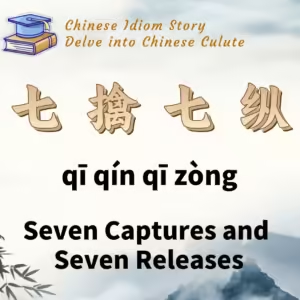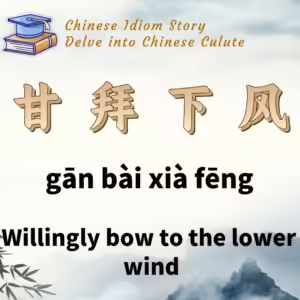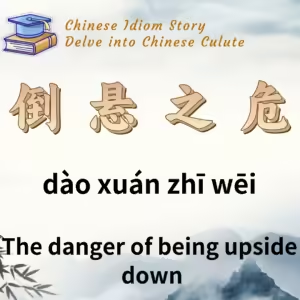
Chinese Idiom: 心悦诚服 (Xin Yue Cheng Fu)
English Translation: Wholeheartedly and sincerely submit
pīn yīn: xīn yuè chéng fú
Idiom Meaning: This idiom describes a state of genuine and sincere submission or acceptance. It implies that someone submits willingly and with a genuine sense of agreement, rather than under duress or merely for convenience.
Historical Source: Mencius – Gong Sun Chou I (《孟子·公孙丑上》)
Idiom Story
The idiom “心悦诚服” originates from a conversation in Mencius between Mencius and his student, Gong Sun Chou. Mencius discussed the concept of leadership and governance, contrasting two different approaches to earning people’s loyalty and submission.
Mencius used the examples of the ancient rulers, Shang Tang (商汤) and Zhou Wenwang (周文王), to illustrate his point. He noted that both rulers governed relatively small territories but were able to win the hearts of their people through benevolence and righteousness. This was in contrast to leaders who relied solely on their military strength to command obedience, which did not result in genuine loyalty.
Mencius explained that relying on force to make people obey will only lead to superficial compliance, not true, heartfelt submission. He emphasized that true submission comes from moral leadership, where people are genuinely pleased and sincerely agree with their leader’s principles. This is like the respect and loyalty that Confucius received from his many distinguished disciples, who were truly devoted and obedient, as expressed in the classic lines from the Book of Songs (《诗经·大雅·文王有声篇》) which states, “From the east to the west, from the south to the north, there is no place that does not wholeheartedly submit.”
The phrase “心悦诚服” thus encapsulates the idea that genuine submission and respect come from moral leadership and heartfelt agreement, rather than through force or coercion.






